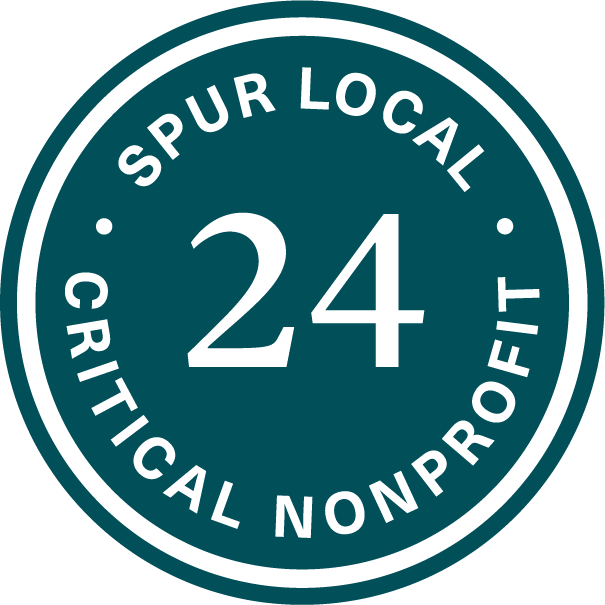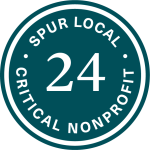Please note: This page is for in formational use only and does not constitute legal advice. Please consult an attorney if you need assistance in a legal matter to address your specific questions.
Navigating the Child Protection Register after your family is investigated by the D.C. Child and Family Services Agency
What is the Child Protection Register?
- The Child Protection Register (“CPR”) is a database created by the D.C. Child and Family Services Agency (“CFSA”). It contains the names and information from a report of child abuse or neglect that CFSA either found to be true or suspected of being true.
Will my name be placed on CPR?
- Even if your children were not removed after an investigation into your family, your name still may be placed on the CPR. If CFSA found that the report was likely true (“substantiated”) or might have been true (“inconclusive”), then your name will be placed on the CPR.
How will I be notified?
- CFSA must mail you a letter within 7 days of making a finding against It is important to hold on to all papers you receive from CFSA.
How long will my name be on the CPR?
- If the report against you was “substantiated,” and your child was not removed, your name may remain on the register for at least 3 years, depending on if you have received any additional
- If the report against you was “substantiated,” and your child was removed, your name may remain on the register for at least 3 to 5 years, depending on if you have been reunited with your child or have received any additional reports.
- If the report against you was “inconclusive,” then your name may be removed from the register within 1 year, depending on if you have received any additional reports.
- If the report against you was “unfounded,” your name shall be removed immediately upon such
Are there any substantiated reports that will not be expunged?
- Under the new law, the following substantiated reports will not be automatically expunged from the CPR: reports involving a child fatality, sexual abuse, sex trafficking, or serious physical
A serious physical injury includes:
- Broken bones or fractures;
- Medical abuse;
- Adult-sized human bites;
- Cases involving children who have been tortured, tied, or confined;
- Suspicious burns or head injuries, or significant injuries with an implausible explanation;
- A physical injury that:
- Creates a substantial risk of death;
- Causes serious and protracted impairment of health or protracted loss or impairment of the function of a bodily organ;
- Involves hospitalization; or
- Requires surgical
- Section 207(e) (D.C. Official Code 4-1302.07(e)
- Section 207(f) (D.C. Official Code 4-1302.07(f))
- 4–1302.07. Expungement. | D.C. Law Library
What can happen if my name is on the CPR?
- If you have a substantiated claim against you, CFSA can release your information from CPR as part of certain employer background checks, or as part of an ongoing CFSA If you work in a business or agency that requires contact with children, you may have to complete a CPR background check.
What if my name is already on the CPR from a prior case?
- Even if you are already listed on the CPR, it can still be worthwhile to challenge your placement through a Fair hearing. Each entry on the CPR is tied to a report, so if you have multiple reports that are placed on the CPR, your name will appear multiple This could affect potential job prospects, depending on your employer’s policies.
How to check if I am on the CPR?
- dc.gov offers a self check request. Vist the CFSA website, search self check, click the top result “CPR SELF–CHECK REQUEST | cfsa”, follow steps 1-3, upload both your completed application and a government issued ID, enter an accessible email address, and the CFSA will process your request within 45 days.
What can I do if I believe I have been unfairly placed on the CPR?
- If you are placed on the CPR, you have the right to a Fair The Fair Hearing is a process where you can challenge the finding against you, and potentially have your name removed from the CPR if you are successful.
Mother’s Outreach Network provides representation to parents during the Fair Hearing process. Please contact us at info@mothersoutreachnetwork.org.
You can also contact CFSA’s CPR office at 202-727-8885.
Sources:
D.C. Code §§ 4-1302.02, 4-1302.07; Child Protection Register, D.C. Child and Fam. Serv. Agency, https://code.dccouncil.gov/us/dc/council/code/titles/4/chapters/13/subchapters/I/parts/B (last visited on July 28, 2023).
A Timeline of your Fair Hearing:
If you are placed on the Child Protection Register, you have the right to a Fair Hearing.
1. Request:
First, you will need to request a Fair Hearing by sending in a Request Form. If you do not receive a request form from CFSA, you can find it online at https://cfsa.dc.gov/page/fair-hearings. You have 30 days to mail in your request form.
2. Schedule:
Once your Request Form is received, the Fair Hearings Coordinator will schedule a Fair Hearing. They should let you know by mail the time of your hearing, your rights at the hearing, and who to call if you cannot attend the hearing.
3. PAR:
Before your Fair Hearing, you will have the option to take part in a Program Administrator Review (“PAR”). You have the opportunity to present your side of the story during this process. If you are happy with the outcome of the PAR, you may not have to participate in the Fair Hearing.
4. Fair Hearing:
During the Fair Hearing, you will have an opportunity to present your side of the story through witnesses and evidence. CFSA will also present witnesses and evidence. A Hearing Examiner will listen to the evidence and decide on your case within 30 days of the hearing.
Your Rights:
During the Fair hearing process, you have the right to:
- An attorney: Please note that CFSA will not provide you with an If you are looking for representation, please contact us at info@mothersoutreachnetwork.org
- Present evidence and witnesses: any documents, family, or friends that can shed light on your case may be helpful during the Fair Hearing.
- View CFSA’s case record against you: Please note that CFSA may be required to keep some information confidential, such as the identity of the reporter.
- Apply for an interpreter: You can indicate on the Request Form that you will need an interpreter
For help, contact 202-818-8649 or legal@mothersoutreachnetwork.org
Sources: D.C. Mun. Regs. Tit. 29 §§5901, 5902, 5903.4, 5908, 5909, 5910, D.C. Child and Fam. Serv. Agency, Fair Hearings Policy (2009).



